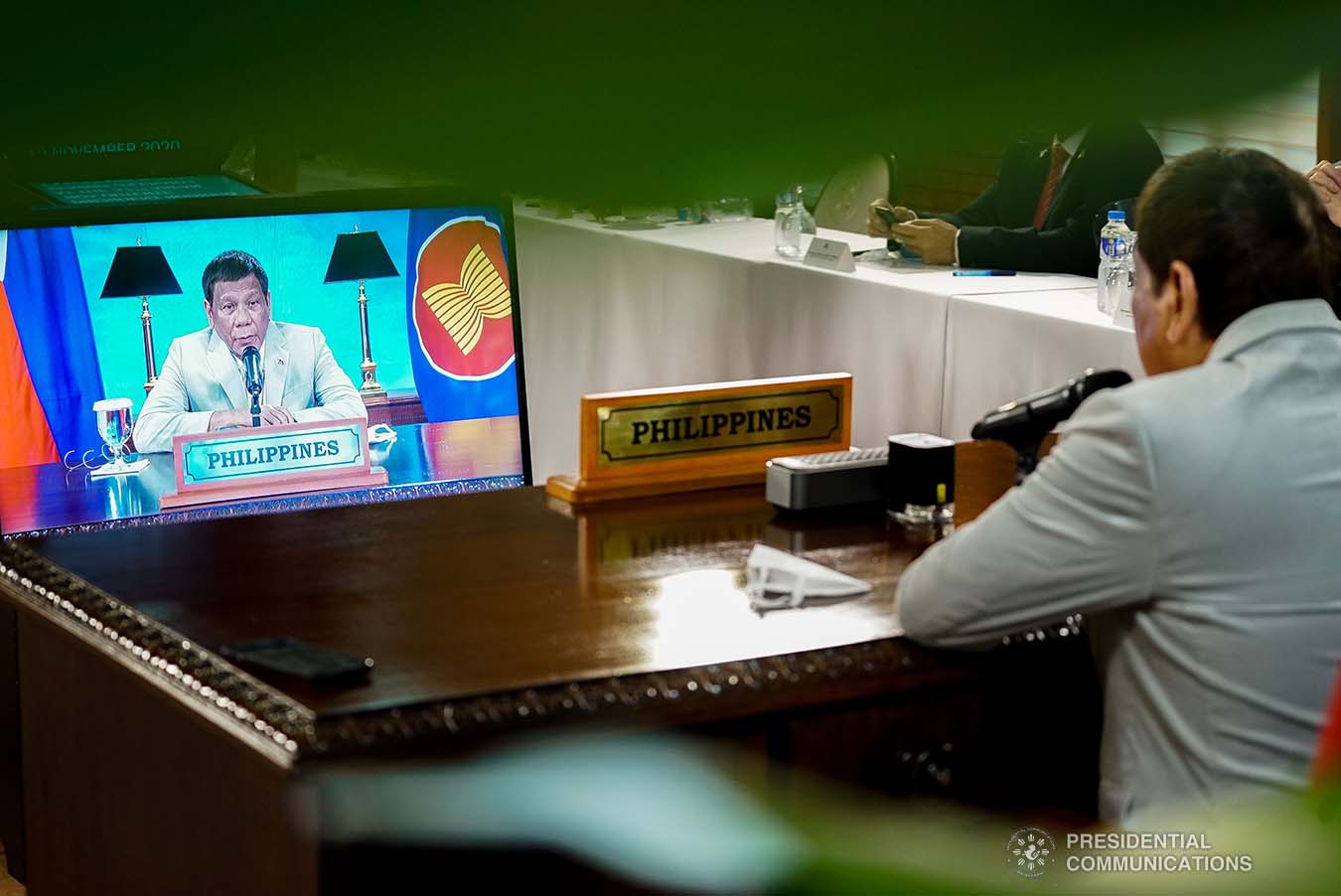
MANILA – President Rodrigo R. Duterte highlighted the importance of the Regional Comprehensive Economic Partnership (RCEP) in further pushing for regional integration.
“On the economic front, we must deepen regional integration and strengthen supply chain connectivity,” Duterte said during the video conference for the 37th Association of Southeast Asian Nations (Asean) Summit on Thursday.
He congratulated the Asean members and their economic partners for the conclusion of the RCEP agreement, which Trade Secretary Ramon Lopez earlier said is scheduled to be signed within this month.
During the 35th Asean Summit and Related Summit in Thailand in 2019, Asean leaders approved 18 of the 20 chapters of the mega trade deal for the 10-country bloc and six trading partners – China, Japan, South Korea, India, Australia, and New Zealand.
Once in place, this free trade pact would account for about one-third of the world’s output.
The trade pact is seen to help in the Philippines’ economic recovery as this is expected to attract more investments, which, in turn, would create more jobs.
The President noted that “growth, to be truly transformative, must be enjoyed by all.”
“We must therefore forge ahead with sub-regional arrangements, such as the BIMP-EAGA, to bridge the development gaps within the region,” he said.
The sub-regional economic cooperation Brunei Darussalam-Indonesia-Malaysia-Philippines East Asean Growth Area (BIMP-EAGA), launched in Davao City in 1994, is set as a venue for the development of remote areas, such as Mindanao.
Duterte said measures targeted to address the impact of the coronavirus disease 2019 (Covid-19) pandemic “must be people-centered.”
“The massive displacement of workers, including migrant workers, compels us to upskill and reskill our labor force. We must equip our people for a rapidly evolving labor market under the new normal,” he said.
The President thanked Asean member-countries for extending support to the Philippines relative to its inaugural chairmanship of the Asean Technical and Vocational Education and Training Council.
He said the position would be used to “build partnerships to further implement the Roadmap of the Asean Declaration on Human Resources Development for the Changing World of Work.”
“As we recover, no sector must be left behind. Our efforts should be targeted and inclusive. We must address the disproportionate effects of Covid-19 on women, migrant workers, and other vulnerable sectors. We have to adopt gender-responsive measures and strengthen social protection systems,” Duterte said.
He also cited the need to “intensify cooperation in promoting and protecting the rights of migrant workers, regardless of their status.”